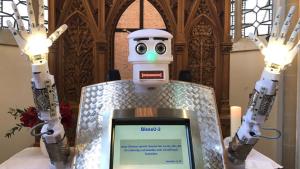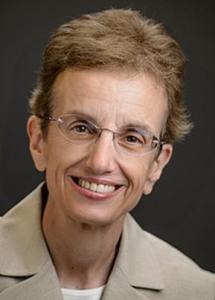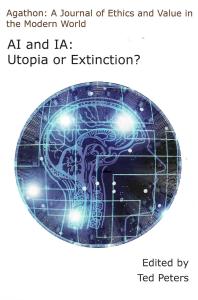Your Robot Pastor is Here

Seminary enrollments have dwindled since 2008. The supply of pastors is so low that not every congregation can have one. But, divine providence has come to our rescue. Meet the robot pastor.
Artificial intelligence is producing artificial preaching, praying, and pastoral care. Some German Lutheran churchgoers can now receive Seelsorge (soul care) from a paster ohne Seele (without a soul).
Bless U-2
Some of us recall well how in 2017 we celebrated the 500th Anniversary of Martin Luther’s posting of the 95 Theses. That was also the ordination year of a robot pastor named Bless U-2. This robot pastor preaches in five languages: German, English, French, Polish, and Spanish. The robot’s head features moving eyebrows and a digital mouth that can alternate between serious and smiling. The robot pastor raises its arms and lighted hands in blessing. By pressing a touchscreen chest button, worshippers can choose between a female and male voice. An evangelical Lutheran church in Hesse and Nassau developed BlessU-2 as part of an exhibit marking the 500th anniversary of the Reformation.
Catholic Answers by Father Justin

AI generated robot priest, Father Justin, provided confession for the website, Catholic Answers. Then, Father Justin was defrocked. Now he only offers catechesis. “While Justin can provide some basic catechesis, he lacks the human qualities—including faith and reason—necessary for real theological insight,” comments Delany Coyne for America. Perhaps this means that human theologians still earn an honest living.
Buddha-Bot
In the Longquan Temple in Beijing you might visit an AI monk–a Buddha-Bot named Xian’er. Ask the Buddha-Bot any question about the meaning of life and you’ll get an answer. If you ask about love, you’ll get an answer such as this: “Love is your own obsessions not being satisfied, the clashing of other people’s troubles with yours.” Well, what would you expect from a Buddha-Bot?
Most of the day, when not answering questions, Buddha-Bot simply meditates quietly on a shelf.
In Japan, we can listen to the teachings of a robot Buddhist priest. Named Mindar, the bot is a six foot tall android made of silicon and aluminum. The million dollar humanoid at the Kodaji Temple in Osaka preaches the “Heart Sutra” in Japanese. English and Chinese translations are available.
Also in Japan, robot priests are available to perform your funeral rite. Note the cost savings. A funeral conducted by a robot priest costs only 50,000 yen (about $450) compared to more than 240,000 yen ($2,200) for a human priest.
And don’t miss the Buddha Geeks with their cybersangha! Awakening is now a team sport. And the game is played online in virtual space. “In the Buddhist Geeks approach it’s the discipline of meditation practice, and the powerful insights leading to deep existential wisdom, that make possible a true transformation in our ethical behavior.”
Rabbi-Bot
In San Francisco you might visit Rabbi-Bot Isaac. One of Isaac’s talents is lighting the menorah. Already since 2013, 5’5 ” Isaac along with a human rabbi, Yosef Langer, has been responsible for lighting the shamash (the helper flame used to kindle the candelabrum’s other lights) on the 3-ton “Mama Menorah” at San Francisco’s annual public Hanukkah candle lighting.
Our Robot Pastor at work
Might we ask our robot pastor to data mine the scriptural corpus to teach us deep Bible learning? Should we heed what our robot pastor says like Daniel listened to the angel Gabriel (Daniel 9:20-22) and like Balaam listened to his talking donkey (Numbers 22:26-35)? Might AI provide a shortcut to sanctificiation? Might we pray for the power of the Spirit to transform Weak AI into Strong AI?

Franciscan sister and Villanova theology professor Ilia Delio believes robot priests might reduce the sex scandals in the Roman Catholic Church. After all, robots are gender neutral.
‘Take the Catholic Church. It’s very male, very patriarchal, and we have this whole sexual abuse crisis. So would I want a robot priest? Maybe….A robot can be gender-neutral. It might be able to transcend some of those divides and be able to enhance community in a way that’s more liberating.”
Might the Roman Catholic Church elect a robot pope? Could a robot pope’s ex cathedra statements provide precision when distinguishing between orthodoxy and heresy?
AI and Faith
In 2023 the world crossed an apparently frightening threshold: the release of ChatGPT. How in the future will you and I ever distinguish between a computerized fake and a genuine person?

Might this confusion apply to robots as well? Optimus, also known as Tesla Bot, introduced by Elon Musk in late 2022, is a life-sized human-like robot. Optimus is engineered to work in the Tesla factory assembling cars. But, Optimus is also being programmed to provide elder care, taking care of our grandparents. Cheaper than a nurse?
In a previous post, “AI Warning: Utopia or Extinction?,” we paused to consider Elon Musk’s proposed pause in AI development until we can put our ethical house in order. Musk recommends a six month think-over.
AI and Faith is already thinking. Sparked by the indefatigable leadership of attorney David Brenner, AI and Faith offers a multi-religious assemblage of computer techies and theologians to monitor the frontier of innovation. AI and Faith envisions “a world where the effects of technology are exclusively life-affirming, promoting the dignity and wellbeing of all humans and improving their interactions through meaningful community and a just society.” As of yet, no robot pastors lead AI and Faith followers in the Sunday morning liturgy.
Body, Mind, Nous
One AI and Faith founder, Nicolete Acatrinei at Princeton University’s Center for Culture, Society, and Religion, recommends we retrieve the wisdom of the Patristics for addressing the role of AI in today’s religious communities.
“Patristics and AI have a common focus: the human being and her betterment. The specific debates of early Christian faith over the divinity and humanity of Christ as well as the Theology of Incarnation and the Theology of Theosis developed by the early Church Fathers brought this anthropological approach to their understanding and interpretation of early church texts. Likewise, the primary concern of the AI Ethics debate is whether it will benefit human flourishing or lead to destruction.”

Acatrinei offers resources for asking a question I deem important: if the robot pastor is not a person, can that pastor provide genuine spiritual care or guidance to those of us who are persons? Following St. John Chrysostom‘s anthropology, Acatrinei stresses the decisive role played by our soul or mind. Even nous.
“…we can see that while the body is indispensable, only when the hierarchy of soul and body is respected can man reach fulfillment. In other words, the invisible part must control the visible part of the human being for man to find happiness, to accomplish his natural beauty and excellence….As the world is digitally transformed and AI becomes ubiquitous in our lives, this distinction Chrysostom uses between the visible and the invisible part of the human being is key to disentangling the various impacts of AI-powered technology on the human being, on her body and also on her mind.”
So, following Patristic anthropology, AI, as any technology, is a tool that can provide easier access to information. Even to study theology. But this doesn’t equal spiritual growth. Spiritual growth is human growth — read: body, soul and mind growth — and only a human who already passed through all steps of this anthropological growth can accompany another human being in this process. Thus speaketh Nicolete Acatrinei.
Even though an AI robot computes at ligthtening speed, it has no mind. It has no invisible rational capacity let alone a shared nous (νοῦς). If this is the case, then the visible robot pastor would be incapable of incarnating in itself the invisible self-control that the Christian life should exhibit. The robot pastor could not provide us with a spiritual example. Does this matter?
Conclusion
The public theologian addresses both intra-ecclesial and extra-ecclesial concerns. On the one hand, theologians should ask whether AI can enhance our spiritual life. On the other hand, theologians along with bioethicists should place themselves in a position to influence positively the worldwide public discussion of guardrailing AI advancement.
If Elon Musk prevails, the wedding of Homo sapiens and Homo cyberneticus will be temporarily postponed. But the bride and groom are already living together. And progeny are getting birthed. Perhaps the robot pastor now toddling will eventually mature as one of the children.
The younger generation spends eight to ten hours per day on a cell phone or computer. Maybe that’s where the robot pastor should be earning an honest living.
Adventures in Artificial Intelligence and Faith, H+ 2003
▓

Ted Peters directs traffic at the intersection of science, religion, and ethics. For Patheos, he posts articles and notices in the field of Public Theology. Peters is an emeritus professor at the Graduate Theological Union, where he co-edits the journal, Theology and Science, on behalf of the Center for Theology and the Natural Sciences, in Berkeley, California, USA. He authored Playing God? Genetic Determinism and Human Freedom? (Routledge, 2nd ed., 2002) as well as Science, Theology, and Ethics (Ashgate 2003). He is editor of AI and IA: Utopia or Extinction? (ATF 2019). Along with Arvin Gouw and Brian Patrick Green, he co-edited the new book, Religious Transhumanism and Its Critics hot off the press (Roman and Littlefield/Lexington, 2022). He has just published The Voice of Christian Public Theology (ATF 2022). See his website: TedsTimelyTake.com.
His fictional spy thriller, Cyrus Twelve, follows the twists and turns of a transhumanist plot.
▓















